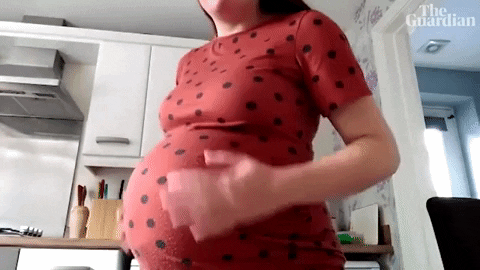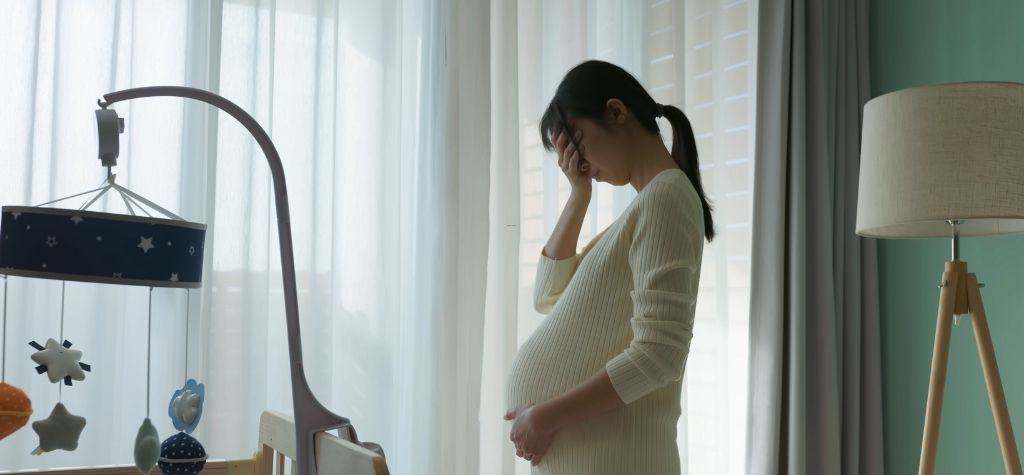Pregnancy is an exciting time, full of emotional and physical transformations. While many expect changes in mood, appetite, and energy levels, fewer anticipate the surprising impact pregnancy can have on their eyes. From dry eyes to blurred vision, these changes can be unsettling, especially when you’re unsure what’s typical and what could signal something more serious.
In this article, we’ll break down the various vision changes during pregnancy, exploring what’s normal, what’s not, and when to seek medical advice.
Understanding Pregnancy and Hormonal Impact on Eyes

Hormones are the central players in most pregnancy-related changes, and your eyes are no exception. Estrogen and progesterone, the primary pregnancy hormones, fluctuate rapidly and can influence everything from fluid retention to blood vessel behavior.
These hormonal shifts can alter the shape and thickness of the cornea, affect tear production, and even impact intraocular pressure. While most of these changes are temporary, they can cause noticeable symptoms that vary in intensity.
Why Do Vision Changes Occur in Pregnancy?
Several biological mechanisms can influence eyesight during pregnancy:
- Hormonal fluctuations: Changes in estrogen and progesterone affect corneal thickness and tear film stability.
- Fluid retention: Can lead to swollen tissues around the eyes, including the cornea.
- Increased blood volume and circulation: This may cause eye pressure changes and affect vision.
- Immune system modulation: May influence eye health in women with autoimmune-related eye disorders.
Understanding these root causes helps demystify why even healthy pregnancies can come with unexpected vision symptoms.
Common Vision Changes During Pregnancy
Most expectant mothers experience mild to moderate vision symptoms that are temporary and harmless. Let’s explore the most frequently reported:
Blurred Vision
This is one of the most common issues. Fluid retention can change the shape of your cornea, leading to mild blurriness or even double vision. In most cases, this resolves after delivery.
Dry Eyes and Discomfort
Hormonal changes can reduce tear production, causing dry, irritated, or scratchy eyes. This condition, known as pregnancy-induced dry eye, may be worse with extended screen time or in dry environments.
Puffy Eyelids and Corneal Changes
Swollen eyelids and subtle corneal thickening can slightly distort how light enters the eye. This can result in sensitivity to light, difficulty wearing contact lenses, and occasional focus issues.
Serious Vision Issues That Shouldn’t Be Ignored

While many vision issues are minor, some may indicate a more serious underlying condition requiring prompt medical attention.
Preeclampsia and Vision Disturbances
Preeclampsia is a high blood pressure disorder unique to pregnancy. Its warning signs often include:
- Blurred vision
- Seeing floaters or flashing lights
- Light sensitivity
- Temporary vision loss
These symptoms are red flags and require immediate medical evaluation.
Gestational Diabetes and Retinal Effects
Poorly managed blood sugar levels can affect the small blood vessels in the eyes, leading to diabetic retinopathy. Symptoms may include:
- Blurred or fluctuating vision
- Dark or empty areas in your vision
- Eye pain or discomfort
Early detection is key to preventing permanent damage.
Retinal Detachment and Flashing Lights
Although rare, retinal detachment is a medical emergency. Signs include sudden vision loss, flashing lights, and a curtain-like shadow over your field of view. Prompt treatment is essential to prevent permanent blindness.
Managing Eye Health During Pregnancy
Keeping your eyes healthy while pregnant involves a few simple yet effective strategies:
Using Artificial Tears and Eye Drops Safely
Choose preservative-free, pregnancy-safe lubricating drops. Avoid any medication unless recommended by your doctor, as some eye treatments are not tested for pregnancy safety.
Adjusting Screen Time and Lighting
Limit screen exposure, take frequent breaks, and use ambient lighting to reduce strain. Consider blue light filters or anti-glare screens if you’re sensitive to artificial light.
Vision Tests and Eye Exams While Pregnant
Routine eye check-ups are generally safe during pregnancy, especially if you experience new or worsening symptoms.
Is It Safe to Update Prescription Lenses?
Due to fluctuating corneal thickness, it’s advised to wait until after delivery to make permanent changes to your prescription glasses or contact lenses.
When to Call a Doctor About Vision Changes

See a healthcare provider immediately if you notice:
- Persistent blurred vision
- Sudden loss of vision
- Severe eye pain
- Flashes of light or floaters
- Headaches with visual aura
Postpartum Vision Recovery
Many vision changes resolve within a few weeks after childbirth. However, if symptoms persist beyond six weeks postpartum, consult an optometrist or ophthalmologist.
Preventive Tips for Eye Health in Pregnancy
- Stay well-hydrated
- Eat foods rich in vitamins A, C, and E
- Get sufficient sleep
- Manage stress
- Avoid rubbing your eyes excessively
These simple habits can help maintain ocular comfort and clarity during pregnancy.
Frequently Asked Questions
Q1: Are vision changes during pregnancy permanent?
A1: Most are temporary and resolve postpartum, but underlying issues like gestational diabetes may cause lasting damage if untreated.
Q2: Can pregnancy cause floaters in vision?
A2: Yes, floaters can appear due to changes in the eye’s vitreous fluid, especially in high blood pressure conditions like preeclampsia.
Q3: Should I stop wearing contacts during pregnancy?
A3: If your contacts become uncomfortable, consider switching to glasses temporarily, as corneal swelling can alter lens fit.
Q4: Is blurry vision an early sign of pregnancy?
A4: It’s uncommon as an early symptom but may appear later in the second or third trimester.
Q5: Can stress worsen vision changes in pregnancy?
A5: Yes, stress can exacerbate symptoms like dry eyes and tension headaches with visual disturbances.
Q6: Are vision changes linked to baby’s gender or health?
A6: No scientific evidence supports a link between baby’s gender and maternal vision changes.
Conclusion: Prioritizing Eye Health During Pregnancy

Understanding what’s normal and what’s not regarding vision changes during pregnancy empowers you to protect your health and your baby’s well-being. While most symptoms are harmless, staying informed and proactive ensures you won’t miss signs of serious conditions like preeclampsia or gestational diabetes.
Don’t hesitate to bring up any vision concerns with your prenatal care provider—your eyesight is just as important as any other aspect of your health during this transformative time.

